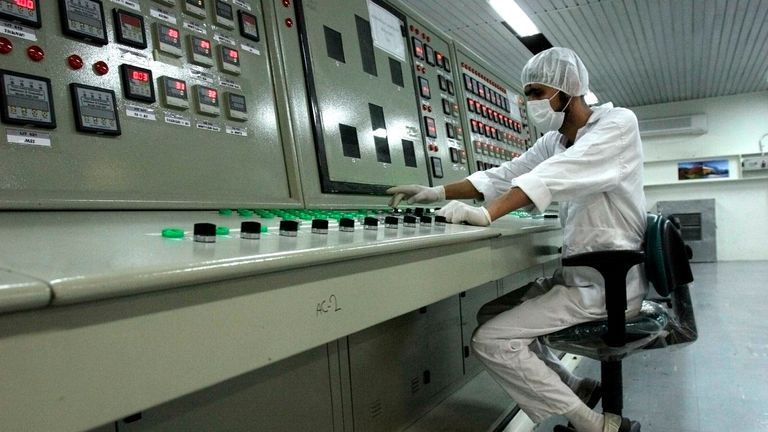Home » World News »
Iran nuclear deal: Arms race in Middle East potentially at stake as talks resume
What could be the last chance of preventing Iran going nuclear gets under way this week. Nuclear talks resume. Potentially at stake is a nuclear arms race in the Middle East, or regional escalation and conflict.
Bedevilled negotiations fell apart in June. Britain joins France, Germany, the US, the EU, Russia and China in talks in the Austrian capital hoping to persuade Iran to return to a deal that was blown apart by Donald Trump.
The clunky acronym JCPOA (The Joint Comprehensive Plan of Action) is the name given to the nuclear agreement signed by all parties in 2015 after years of tortuously difficult diplomacy.
The deal lifted sanctions on Iran while its government agreed to mothball its nuclear programme. Iran has always insisted it only enriches uranium for civilian purposes. The outside world suspects it is trying to build the bomb.
Mr Trump scuppered the deal; scratching America’s signature from it and imposing maximum pressure sanctions instead.
With America reneging on the deal, Iran went back to enriching.
To build the bomb requires uranium enriched at 90%. The deal allowed Iran to enrich at just over 3%. Having fired up its centrifuges again it is now estimated to have 114kg enriched at 20% and 17.7kg at 60%.
Some estimate it would now take Iran only a month to build the bomb should it shrug off all constraints and go all out. Others estimate that “breakout time” at little more than six months.
Israel is so deeply alarmed it is dusting off plans to bomb Iran’s nuclear programme. For years it has waged a secret war on Iran’s bombmakers, assassinating leading scientists and using ingenious cyber tactics to sabotage their work. If necessary it says it would take military action. Iran’s leaders have repeatedly talked of wiping Israel off the face of the map.
Saudi Arabia has made it clear it would work to counteract any Iranian nuclear weapons programme with one of its own.
A nuclear arms race or Israeli military offensive on Iran would deeply stabilise an already volatile region and threaten global economic repercussions.
Iran desperately needs a deal. Its economy is ravaged by crippling sanctions. But the country’s new hardline government is acting tough. International atomic inspectors have been harassed and intimidated, their work stymied.
Ahead of this week’s talks the Iranians have been increasing their demands. The new president, Ebrahim Raisi, has not sounded overly enthusiastic about returning to a deal he criticised his predecessors for signing.
British and American diplomats insist a deal is within reach and would benefit everyone. There will be a predictable amount of posturing and grandstanding as talks reopen. Then we will see if either side have brought serious workable offers to the table. If not, hopes of the JCPOA being taken off life support will evaporate with all that could follow.
Source: Read Full Article




